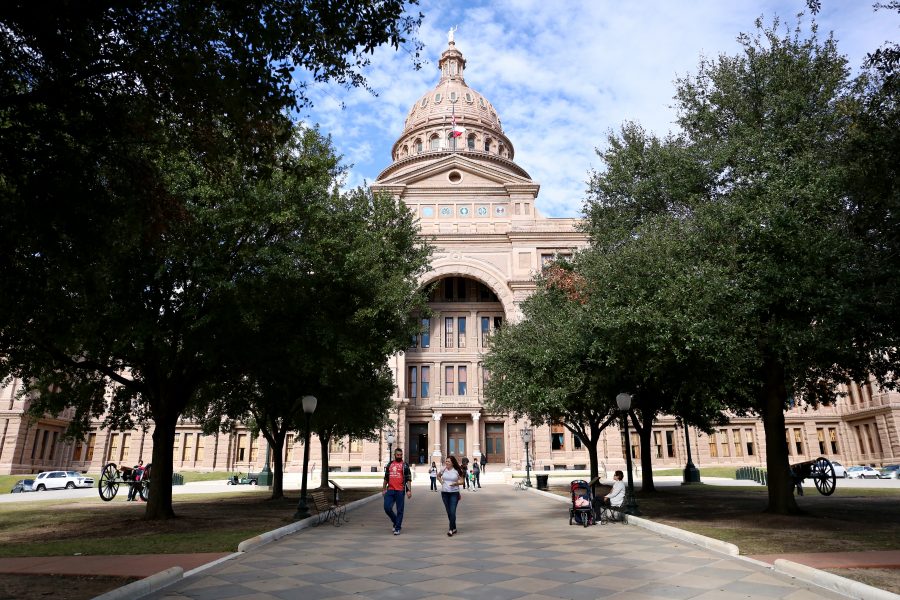The recent Supreme Court case of Walker v. Texas Division, Sons of Confederate Veterans appeared to be one of those contentious 5-4 splits, but the majority and the dissent actually only disagreed on one question: whether or not specialty license plates are government speech or private speech.
As a result of this decision, we can learn three lessons that are especially relevant in light of recent controversy over the place of Confederate symbols in public spaces. First, specialty license plates are government speech. Second, there are few limits on government speech. And third, there are few limits on private speech. It is important to keep these three points in mind as we deal with highly charged social-political issues, because some have grown increasingly intolerant of the right to free speech enshrined by the First Amendment to the U.S. Constitution.
Regarding the first point, the majority correctly held that specialty license plates are government speech. The dissent argued that the license plates cannot be government speech, because the state isn’t necessarily endorsing the “sentiments reflected in these specialty plates,” as Justice Samuel Alito noted. An example given is that one would not assume that “the State of Texas was officially (and perhaps treasonously) rooting for the Longhorns’ opponents” simply because there are Texas specialty plates “with the names of the University of Texas’s out-of-state competitors in upcoming games—Notre Dame, Oklahoma State, the University of Oklahoma, Kansas State [and] Iowa State.”
“One could argue that once the government opens up license plates to Hookem [and] other kinds of messages, it gives up its right to control what goes on plates,”Adjunct Government Professor Alan Sager said.
Alito’s dissent is only correct in that it is true that no one would make the above assumptions. However, even though the state is not perceived to promote and endorse the sentiments reflected by these plates, the plates themselves are still government speech. Law Professor Sanford Levinson points to the argument made by Mark Graber, a Maryland legal academic, that the decision “is best justified if government speech sometimes communicates a range of ideas or activities that government finds acceptable, and need not be restricting to the limited number of ideas or activities that government thinks best.”
In other words, the government speech is not the content of the license plate, but rather the inherent government decision on whether or not to allow for the plate to be used.
Furthermore, there are few limits on government speech. The state government found that the local chapter of the Sons of Confederate Veterans (SCV) proposed a plate design that was unacceptable. This was because “it might be offensive to any member of the public,” which under Texas statute is a reason for refusing to create the plate. Free speech is not violated by Texas’s refusal to accept the SCV plate design. Rather, the SCV sought to force the state of Texas into making it government speech, which it doesn’t have the power to do. Just as how the government is also constrained from compelling private individuals to say something, private individuals cannot do the same to the government.
Alito’s dissent saw this decision as a constraint on individual private speech. Yet, if people want the freedom and right to express their recognition of the Confederate war effort a century and a half ago, they can simply put bumper stickers of the Confederate flag on their cars. Clearly, this case changes nothing as to freedom of private speech.
Additionally, even if the SCV would have emerged triumphant, their victory would have likely been pyrrhic. With public officials and corporations recently calling for the removal of Confederate flags from the public eye, it is doubtful that Texas would support the issuance of such plates. It would be my guess that Gov. Greg Abbott would have called a special session to address this issue if the Supreme Court had ruled the other way. Perhaps Texas would rather stop issuing all specialty license plates than to allow the SCV plate design to be produced.
Today, even though the individual's and government’s right to free speech should be respected, some do not tolerate anything that memorializes the confederacy. This is seen by the repeated vandalism of the Jefferson Davis statue. These behaviors are criminal, even if you hate Davis and the confederacy. Vandalism is not free speech; rather, it is a crime.
We must not forget that we live under a constitution that guarantee rights to the individuals and the government, including the right to free speech. In conclusion, the placement of monuments of the confederacy on campus is part of government speech, and, as the recent Supreme Court case reaffirms, this right needs to be respected. If the University decides to remove the statues, it is also under their right of government speech.
Hung is a second year law student from Brownsville.





















